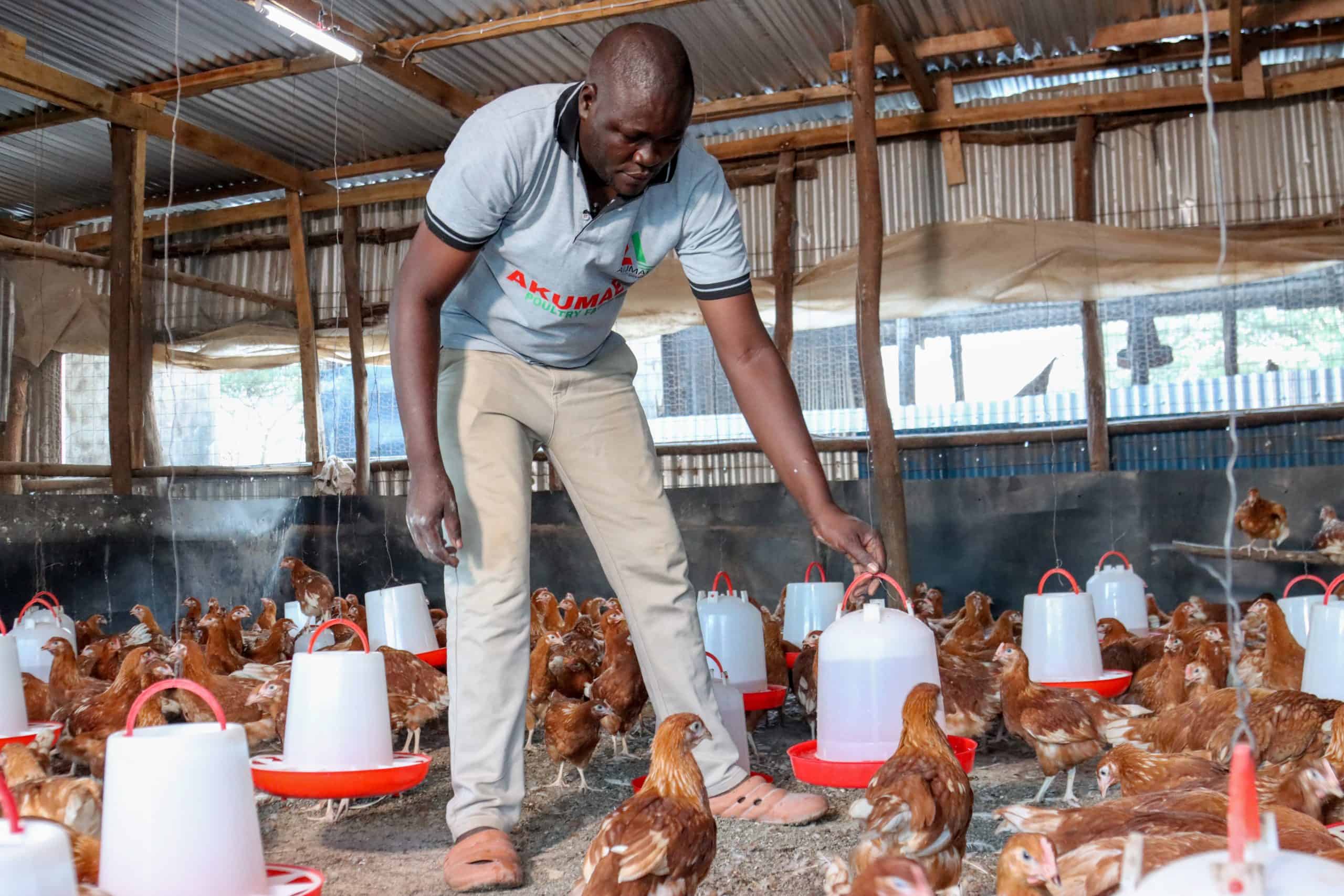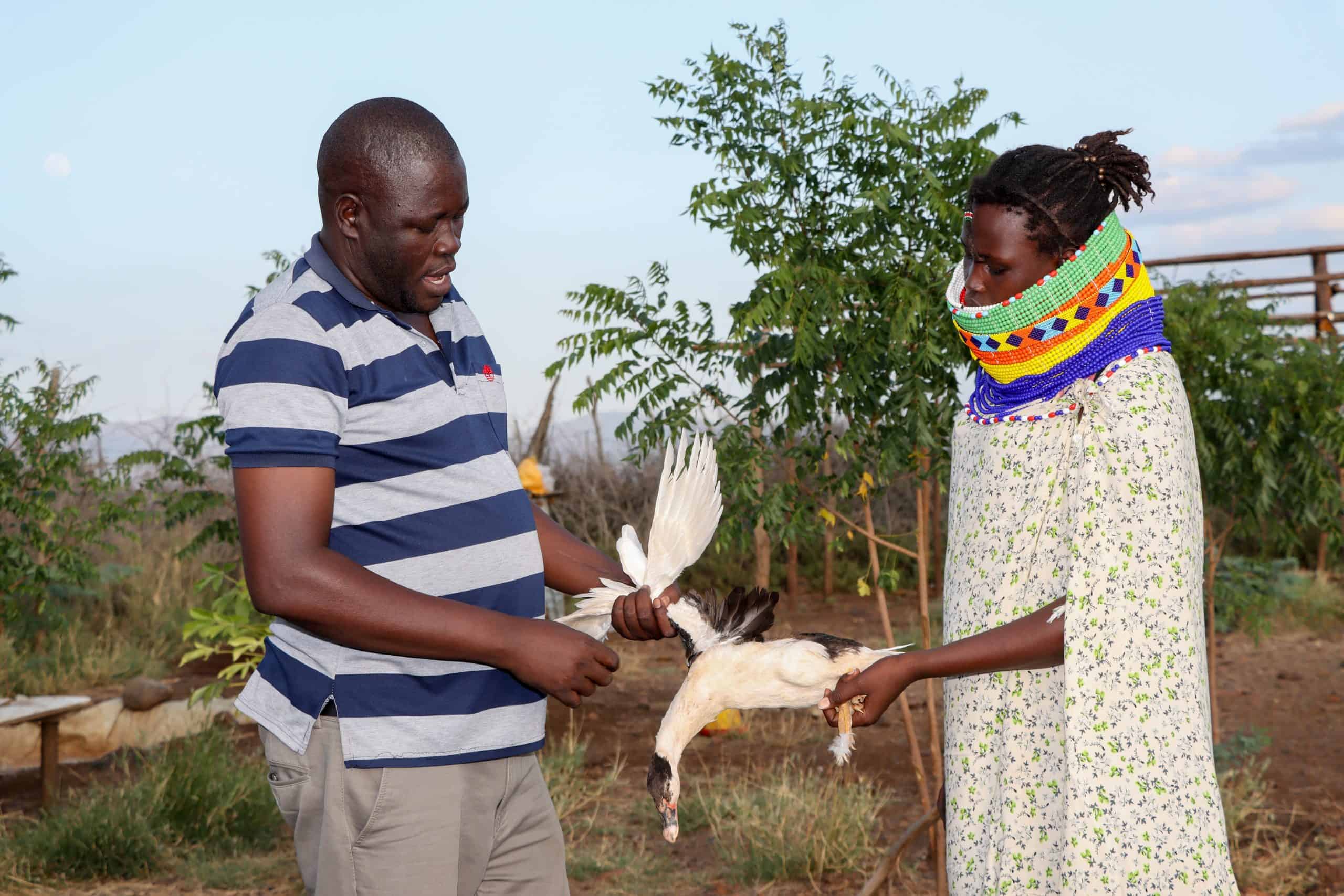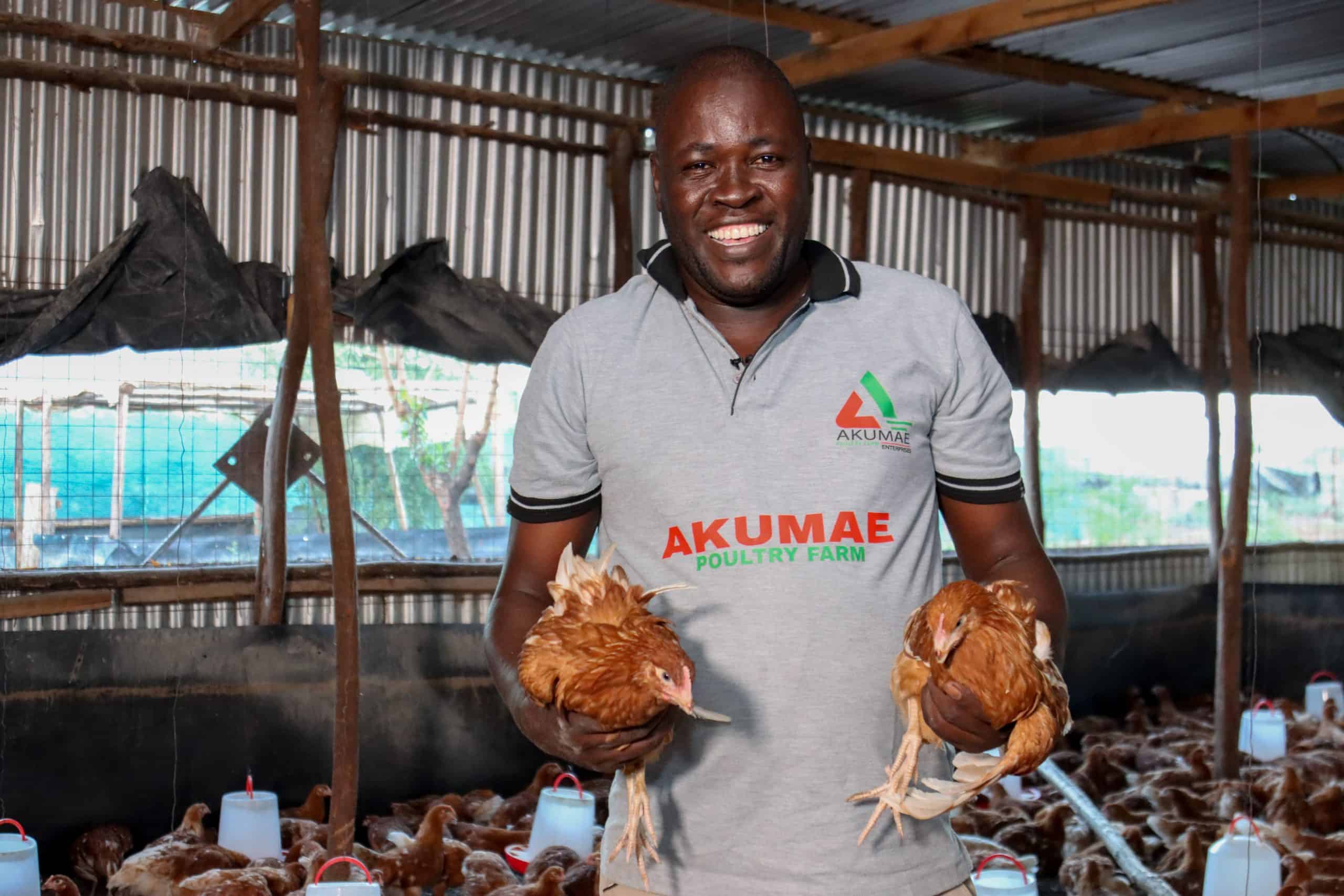Feeding Kakuma’s growing demand for poultry products
A nutritionist by profession, Raphael Ewoi Ekamais previously worked in a hospital before venturing into poultry farming, a business opportunity driven by rising demand for chicken meat and eggs. Raphael has also converted his poultry farm into an excellence center where prospective small–scale farmers are increasingly seeking information and training to equip themselves with the necessary skills to engage in poultry farming and improve their livelihoods commercially.
The Turkana people have been mainly pastoralists, rearing cattle, goats, and camels as a culture and means of livelihood. Poultry keeping was until recently done by a few members of this community for subsistence. This is changing as more people realize that poultry farming is commercially viable. In a region with limited access to varied dietary options, many residents are gradually embracing poultry products as a substitute for other meat products,’ said Raphael. Much of the poultry products are sourced outside the region from as far as Kitale, 600 km away. This means that accelerated local production would improve the local availability of these products and pricing, benefiting more people in Kakuma.
Raphael, who lives in Kakuma’s Highlands Settlement Scheme, started by rearing Indigenous chicken on the free range before investing in improved varieties that are less prone to diseases and have a faster growth rate. “My goal is to popularize chicken rearing in the community by training more people and ultimately organizing them into a cooperative society. This will enable them to boost production and cash in from the high demand,” he says, ushering us into his small office – the base of Akumae Enterprises, a poultry business he registered in 2019.

Thanks to Kakuma Kalobeyei Challenge Fund (KKCF) support, he is now an established poultry farmer mentoring several other poultry farmers from his community. When we arrived at his farm, Raphael had just returned from a training event in Kakuma town, where he was one of the resource personnel providing insights into poultry farming best practices. With the KKCF grant, he bought a flock of 2,000-day-old chicks, agrovet products, and chicken feeds and renovated the chicken coop. ‘My business has now grown to not only serve the initial walk-in customers but also hotels, education institutions, and other poultry farmers eager to learn from my business,’ he reflects when we ask how the business journey has been.
KKCF provided a grant for his business and business development services through an accelerator program targeting proprietors who had expressed interest in working with KKCF. From the program, he gained insights into sales and marketing, operations, financial management, business planning, and environmental, social, and governance aspects of business operations. ‘The level of business management skills and knowledge among small-scale entrepreneurs in Kakuma is very low, so they are disadvantaged when it comes to access to capital despite having brilliant business ideas,’ said Raphael when asked about the benefits of participating in such programs. “My initial proposal, as was the case for other businesses, was unsuccessful; this changed after joining the seven-week accelerator program,” he recalls. KKCF program manager Brian Meme explains that the accelerator program was introduced after the realization that the intended beneficiaries lacked the key business management skills required to scale their operations and generate the desired impact in the area. “A good number of these micro-entrepreneurs are enterprising, but developing compelling business proposals and meeting the competitive selection criteria is a challenge; the accelerator program was a solution,” says Brian.
Raphael continues to share that chicken feeds and vaccines are key components of poultry farming that take substantial production costs. He sources most of his input from Kitale. Still, he advises that this soon change, especially regarding chicken feeds, because he has been piloting the production of Azolla and duckweed on his farm with promising results. This will complement the chicken feed that will soon be sourced locally. Azolla and duckweed are high-protein aquatic plants that have gained popularity as sustainable and cost-effective feed options for livestock, poultry, and fish. They grow rapidly with minimal resource requirements that make them particularly suitable for resource-constrained areas like Kakuma. “Azolla and duckweed take two weeks to mature, and I am now incorporating them into poultry diet, which has improved the chickens’ health and growth rate, leading to better production results,” says Raphael, who also sells these feed supplements to other farmers.
Raphael has trained 210 people, 169 teenagers and young mothers from refugee and host communities. Many trainees have established poultry farms, which have become income-generating projects. Key training areas include poultry infrastructure requirements, including location, ventilation, amenities, lighting, and drainage. He identifies poultry feeding, vaccination, and hygiene components of a successful poultry farm. Quality, as well as sourcing of inputs, is another aspect that he focuses on during his training.

Jane Ekal, 20, is one of Raphael’s mentees. A mother of one, Ekal dropped out of school in form two and joined Raphael at his farm to learn how to rear chickens as a business. “I am still determined to return to school, but I have a child to care for. Poultry farming came in handy as I can now feed and clothe my child, support the family, and still save ten percent of my earnings,” says Jane.
Asked about his future, Raphael says he will expand his business to become a local input supplier of choice and a go-to supplier of poultry products in Kakuma. Raphael’s poultry farming journey is driven by passion and the need to contribute value to his community. By doing so, he plays a role in food security and provides hope and an economic channel to self-reliance to vulnerable groups in Kakuma.
